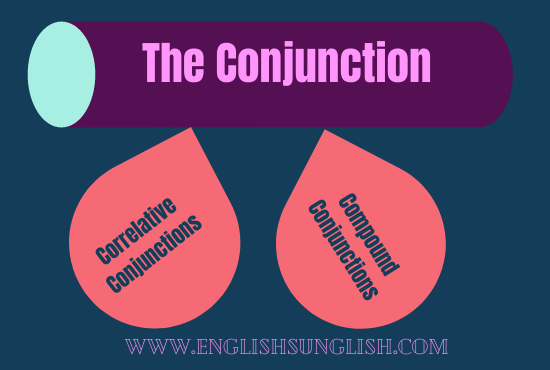Adverbs of Affirmation or Negation|Definition, Use, Examples
Adverbs of Affirmation are Adverbs that express agreement or confirmation, such as “certainly,” “indeed,” and “absolutely.” On the other hand, Adverbs of Negation are words that express disagreement or denial, such as “no,” “never,” and “not.” These Adverbs are used to modify verbs, adjectives, or other adverbs in a sentence to indicate the speaker’s attitude or opinion.
“Certainly” As An Adverb of Affirmation
Certainly is an Adverb of Affirmation that expresses agreement or confirmation. Its etymology traces back to the Middle English word “certain” and the Latin word “certus,” which means “fixed” or “settled.” It first appeared in the English language in the early 15th century and has been in use ever since.
Examples of “Certainly” As An Adverb of Affirmation
Following are some examples of “Certainly” as an Adverb of Affirmation.
- “Certainly, I would be happy to help you with your project.”
- “She certainly knows how to make a delicious pizza.”
- “I certainly appreciate your offer to lend me some money.”
- “The party was certainly a success, everyone had a great time.”
- “I can certainly see why you would be interested in that job.”
- “He certainly has a lot of talent in playing the piano.”
“Indeed” As An Adverb of Affirmation
“Indeed” is an Adverb of Affirmation that expresses agreement or confirmation. Its etymology can be traced back to the Middle English phrase “in dede,” which means “in fact.” It has roots in the Old English word “dǣd,” meaning “act” or “deed.” It has been in use in English since the 14th century.
Examples of “Indeed” As An Adverb of Affirmation
Following are some examples of “Indeed” as an Adverb of Affirmation.
- “Indeed, that was the best meal I have ever had.”
- “The view from the top of the mountain is indeed breathtaking.”
- “You are indeed correct, the meeting is scheduled for tomorrow.”
- “That was a difficult exam, but indeed, you managed to pass it.”
- “Her performance in the play was indeed remarkable.”
- “The data supports your hypothesis, indeed, your theory seems to be correct.”
“Absolutely” As An Adverb of Affirmation
Absolutely is an Adverb of Affirmation that expresses complete agreement or confirmation. It comes from the Latin word “absolutus,” meaning “complete” or “perfect.” It entered English in the early 15th century and has been used to express strong agreement or affirmation ever since.
Examples of “Absolutely” As An Adverb of Affirmation
Following are some examples of “Absolutely” as an Adverb of Affirmation.
- “I absolutely loved the movie we watched last night.”
- “Yes, absolutely, I will be there for your graduation ceremony.”
- “The customer service at that store is absolutely terrible.”
- “The new product is absolutely amazing, it’s a game-changer.”
- “I am absolutely sure that we will win this game.”
- “The weather is absolutely perfect for a day at the beach.”
“No” As An Adverb of Negation
“No” is an Adverb of Negation that expresses denial or refusal. Its etymology can be traced back to the Old English word “nā,” which means “never.” It has been used in English since the 12th century and is derived from the Proto-Germanic word “ne,” meaning “not.”
Examples of “No” As An Adverb of Negation
Following are some examples of “No” as an Adverb of Negation.
- “No, I don’t think I’ll be able to attend the meeting tomorrow.”
- “No, I don’t like spicy food at all.”
- “He said no to the proposal, it was not what he had in mind.”
- “No, I haven’t seen that movie yet.”
- “No, I’m not interested in going to that concert.”
- “No, I don’t agree with your opinion on that matter.”
“Never” As An Adverb of Negation
“Never” is an Adverb of Negation that expresses a complete lack of occurrence or existence. It comes from the Old English word “nǣfre,” which means “not ever.” It is derived from the Proto-Germanic word “nai,” meaning “never,” and has been in use in English since the 14th century.
Examples of “Never” As An Adverb of Negation
Following are some examples of “Never” as an Adverb of Negation.
- “I never eat fast food, it’s not healthy.”
- “She never goes to bed before midnight.”
- “He never forgets to call his parents on their birthdays.”
- “I have never been to Paris, but I would love to visit someday.”
- “I never expected to see you here, what a surprise.”
- “She never complains, no matter how hard the work is.”
“Not” As An Adverb of Negation
“Not” is an Adverb of Negation that expresses a negative or opposite meaning. Its etymology can be traced back to the Old English word “nā,” which means “not ever.” It is derived from the Proto-Germanic word “ne,” meaning “not,” and has been used in English since the 9th century.
Examples of “Not” As An Adverb of Negation
Following are some examples of “Not” as an Adverb of Negation.
- “I’m not feeling well today, I think I need to stay home.”
- “She’s not interested in pursuing a career in medicine.”
- “I’m not sure if I’ll be able to finish this project on time.”
- “The movie was not as good as I expected it to be.”
- “I’m not the one who broke the vase, it was already like that.”
- “The restaurant was not busy, we were able to get a table right away.”


